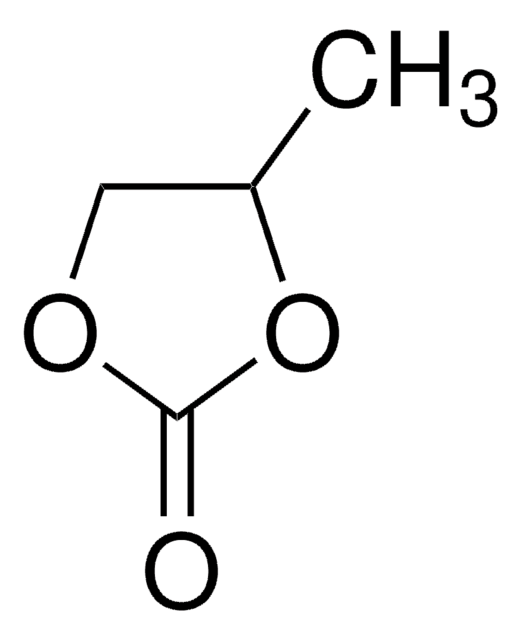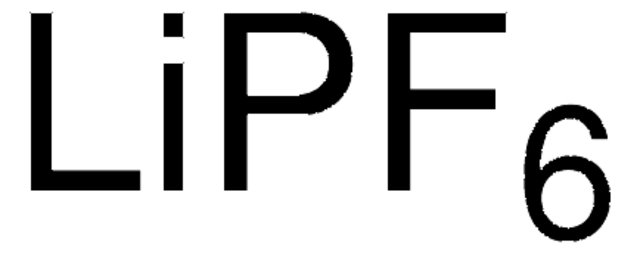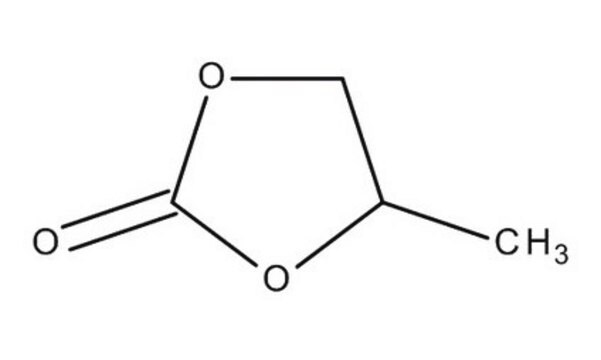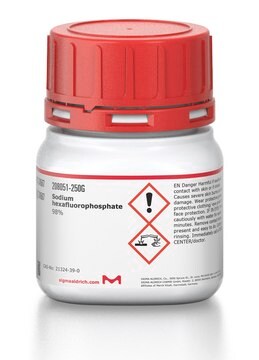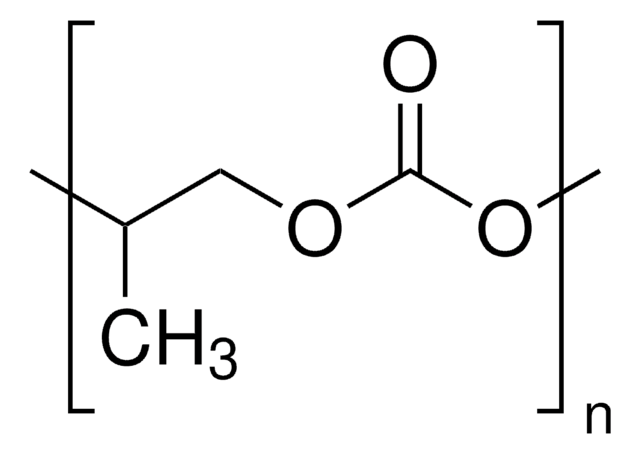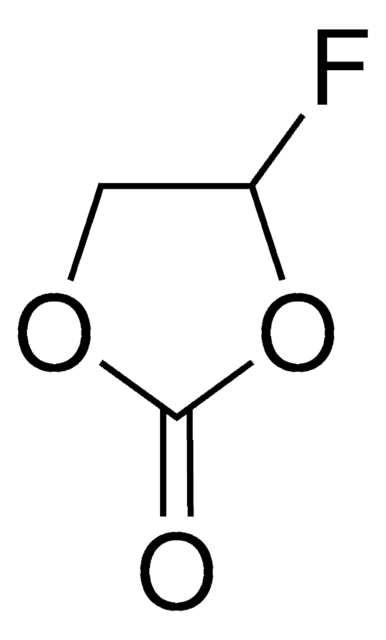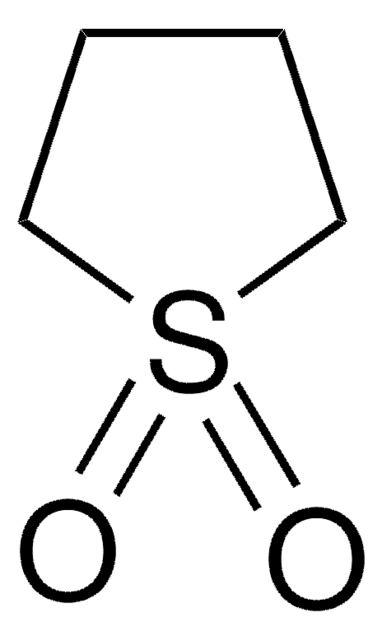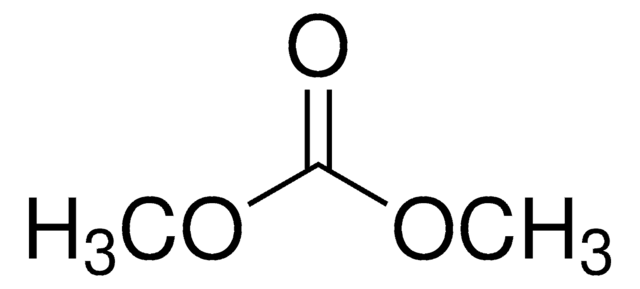414220
Propylene carbonate
suitable for HPLC, 99.7%
Synonym(s):
1,2-Propanediol cyclic carbonate, 4-Methyl-1,3-dioxolan-2-one
About This Item
0.98 mmHg ( 50 °C)
Recommended Products
vapor pressure
0.13 mmHg ( 20 °C)
0.98 mmHg ( 50 °C)
Quality Level
Assay
99.7%
form
liquid
autoignition temp.
851 °F
expl. lim.
14.3 %
technique(s)
HPLC: suitable
impurities
<0.020% water
evapn. residue
<0.0005%
refractive index
n20/D 1.421 (lit.)
pH
7 (20 °C, 200 g/L)
bp
240 °C (lit.)
mp
−55 °C (lit.)
density
1.204 g/mL at 25 °C (lit.)
λ
H2O reference
UV absorption
λ: 235 nm Amax: 1.00
λ: 280 nm Amax: 0.50
λ: 300 nm Amax: 0.30
λ: 350 nm Amax: 0.05
λ: 375-400 nm Amax: 0.01
application(s)
food and beverages
SMILES string
CC1COC(=O)O1
InChI
1S/C4H6O3/c1-3-2-6-4(5)7-3/h3H,2H2,1H3
InChI key
RUOJZAUFBMNUDX-UHFFFAOYSA-N
Looking for similar products? Visit Product Comparison Guide
General description
Application
Signal Word
Warning
Hazard Statements
Precautionary Statements
Hazard Classifications
Eye Irrit. 2
Storage Class Code
10 - Combustible liquids
WGK
WGK 1
Flash Point(F)
269.6 °F - closed cup
Flash Point(C)
132 °C - closed cup
Choose from one of the most recent versions:
Already Own This Product?
Find documentation for the products that you have recently purchased in the Document Library.
Customers Also Viewed
Articles
Research and development of solid-state lithium fast-ion conductors is crucial because they can be potentially used as solid electrolytes in all-solid-state batteries, which may solve the safety and energy-density related issues of conventional lithium-ion batteries that use liquid (farmable organic) electrolytes.
Our team of scientists has experience in all areas of research including Life Science, Material Science, Chemical Synthesis, Chromatography, Analytical and many others.
Contact Technical Service